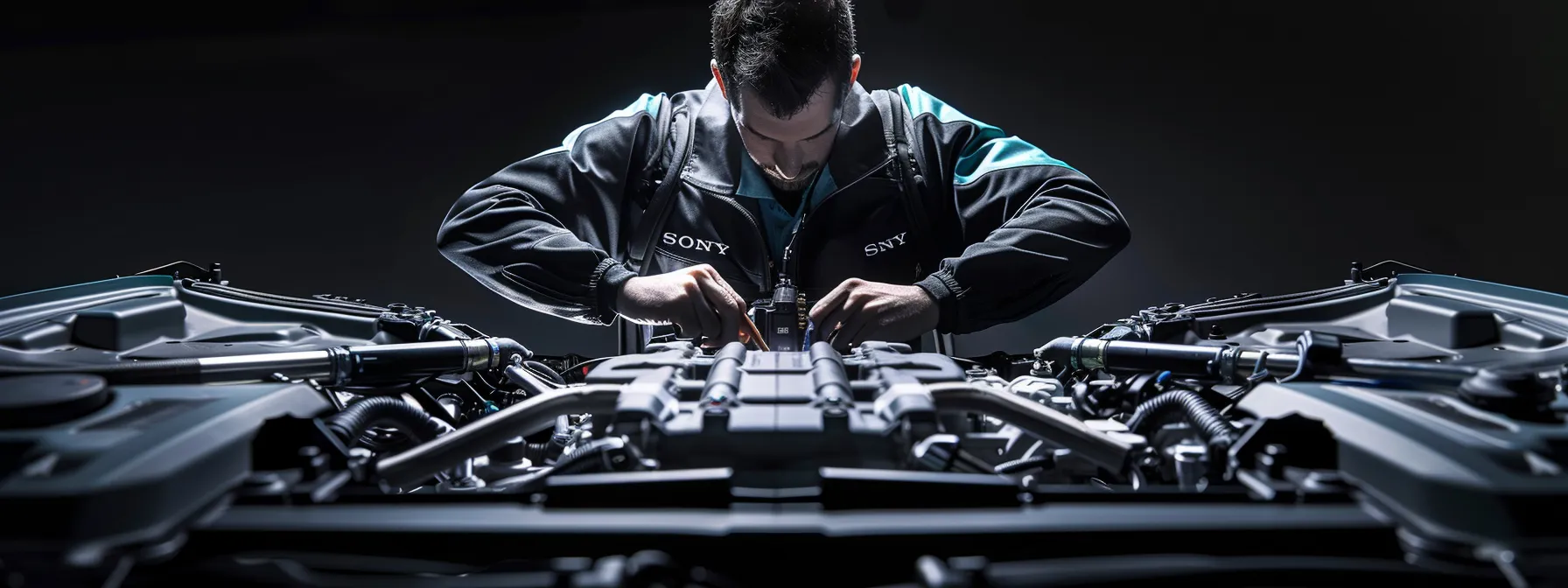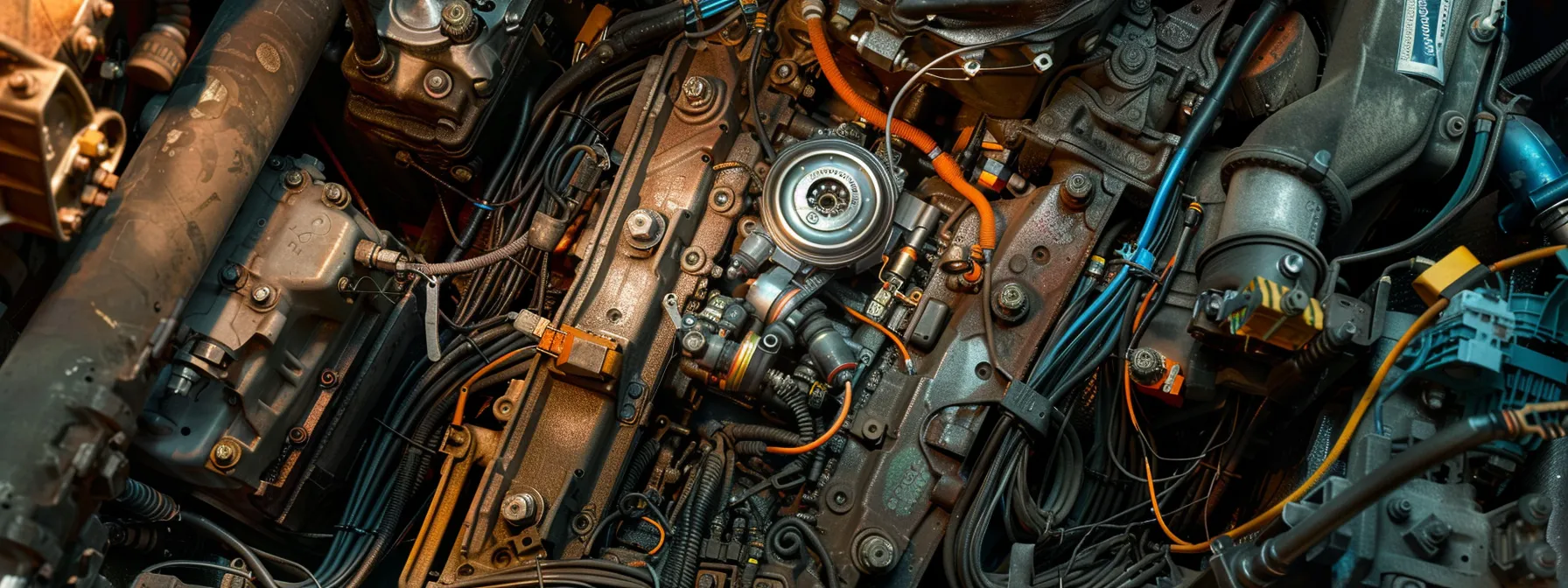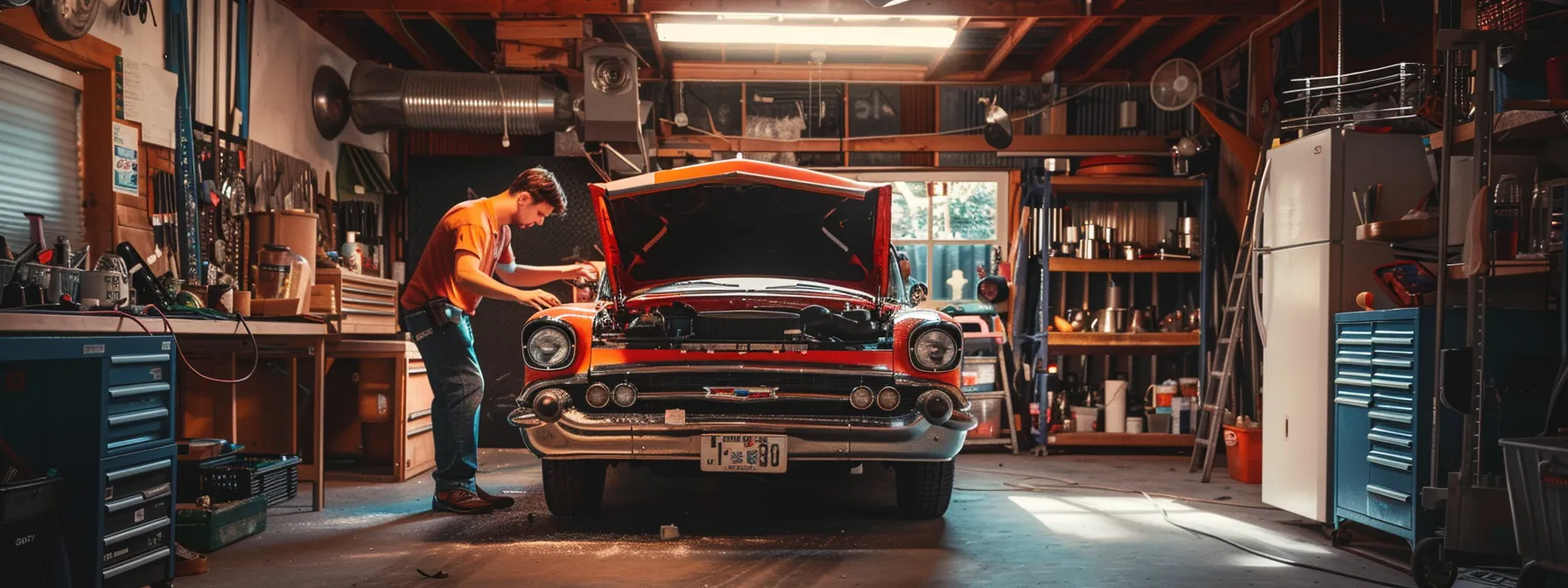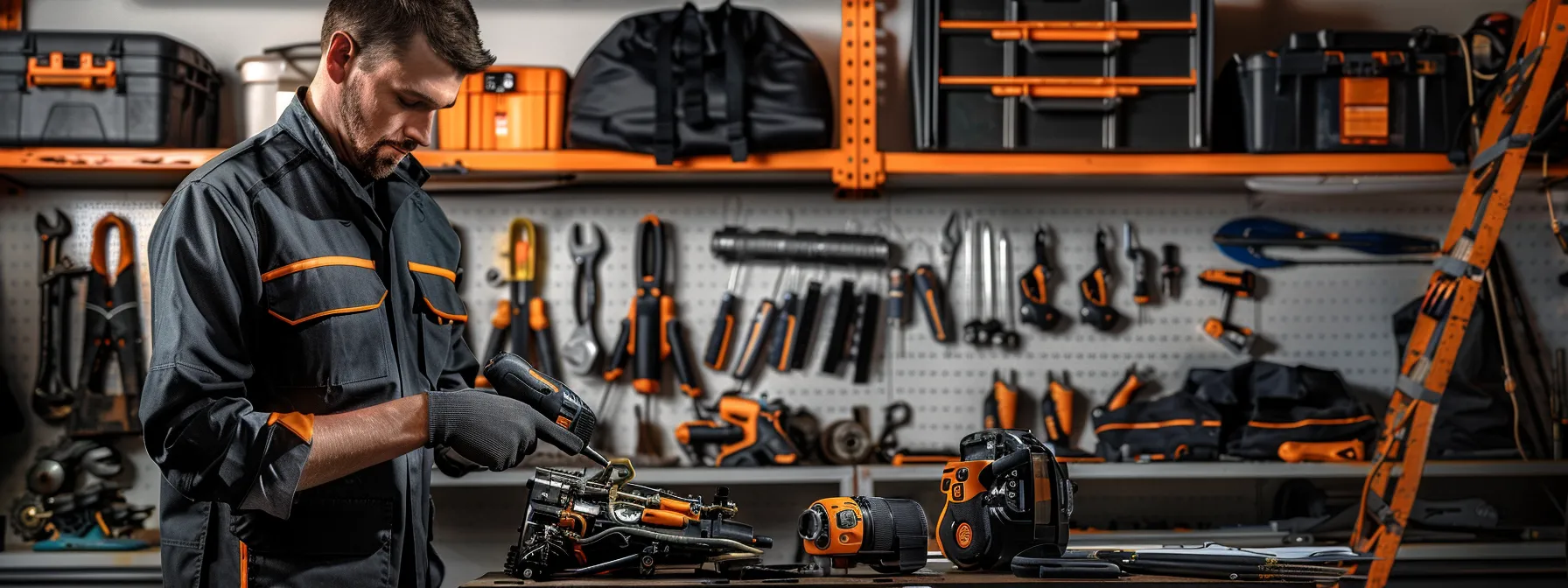How Engine Tune-Ups Enhance Vehicle Longevity and Performance
Is your car not performing like it used to? Regular engine tune-ups can be the answer to keeping your vehicle running smoothly. This blog post will explore the importance of engine tune-ups, the benefits they bring to performance, and how they can extend your vehicle‘s longevity. By understanding the essential components checked during a tune-up, like the ignition system and exhaust system, car owners can prevent issues like leaks and contamination that affect combustion. Dive in to learn how to keep your car in top shape and avoid costly repairs down the road!
Key Takeaways
- Regular engine tune-ups enhance vehicle performance and fuel efficiency
- Signs of needing a tune-up include strange noises and poor fuel economy
- DIY maintenance tasks can improve vehicle longevity and performance
- Choosing a reliable mechanic ensures thorough and effective tune-up services
- Understanding service costs helps car owners budget for necessary maintenance
Understanding the Importance of Engine Tune-Ups

Engine tune-ups are essential for keeping a vehicle running smoothly. They involve checking and replacing parts like spark plugs, filters, and fluids, which helps reduce wear and tear on the engine. Signs that a vehicle needs a tune-up include poor fuel efficiency, strange noises, or issues with the air conditioning and radiator. Understanding these aspects can significantly enhance vehicle longevity and performance.
What an Engine Tune-Up Involves
An engine tune-up typically involves a thorough inspection and replacement of key components that keep a vehicle running efficiently. This includes checking the spark plugs, which ignite the fuel-air mixture, and replacing the air filter to ensure the engine breathes properly. Regularly changing the motor oil and oil filter is also crucial, as clean oil lubricates engine parts and helps prevent wear and tear, making it a vital part of any auto repair shop‘s service offerings.
During a tune-up, technicians will also assess the vehicle‘s fluids, including coolant and transmission fluid, to ensure everything is at optimal levels. This proactive approach not only enhances performance but also extends the life of the vehicle. By addressing these elements, car owners can avoid more significant issues down the road, saving time and money in the long run:
- Inspect and replace spark plugs.
- Change the air filter for better airflow.
- Regularly change motor oil and oil filter.
- Check and top off all essential fluids.
- Identify potential issues before they become major problems.
Signs Your Vehicle Needs a Tune-Up
Car owners should keep an eye out for several signs that indicate their vehicle might need a tune-up. If the engine is making strange noises or if the fuel efficiency has taken a nosedive, it’s time to consider a visit to the auto repair shop. Issues like a worn spark plug or a clogged oil filter can lead to bigger problems, especially in a diesel engine, so addressing these symptoms early can save both time and money.
Another red flag is if the vehicle struggles to start or if the check engine light comes on. These issues often point to underlying problems that could affect the bearings or other critical components. Regular tune-ups help catch these issues before they escalate, ensuring that the vehicle runs smoothly and efficiently for years to come.
Engine tune-ups are not just routine; they are the lifeblood of your car’s performance. Discover how regular tune-ups can keep your engine running strong and your drive smooth.
Benefits of Regular Engine Tune-Ups on Performance

Regular engine tune-ups play a crucial role in enhancing vehicle performance. They help improve fuel efficiency by ensuring that components like coolant and air filters are in top shape. Additionally, tune-ups boost acceleration and power while reducing harmful emissions, making maintenance tasks more effective. Understanding these benefits can guide car owners in scheduling tune-ups with the right frequency to keep their vehicles running smoothly.
Enhancing Fuel Efficiency
Regular engine tune-ups can significantly enhance fuel efficiency by ensuring that the combustion chamber operates at its best. When components like spark plugs and air filters are in good condition, they help the engine burn fuel more effectively. This means that car owners can enjoy better mileage, which is especially important when the check engine light comes on, signaling that something might be off with the engine‘s performance.
Additionally, preventative maintenance, such as checking the timing belt and tire tread, plays a vital role in overall vehicle efficiency. A well-maintained timing belt ensures that the engine runs smoothly, while proper tire tread helps with traction and reduces rolling resistance. Together, these factors contribute to a more efficient vehicle, allowing drivers to save money at the pump and avoid costly repairs down the line.
Improving Acceleration and Power
Regular engine tune-ups can significantly improve a vehicle‘s acceleration and power. When components like the spark plugs and air filters are in top shape, the engine can perform at its best, reducing the pressure on the system. This means smoother acceleration, allowing drivers to merge onto highways or navigate city streets with ease, all while avoiding costly repairs that can arise from neglecting maintenance.
Additionally, inspecting the timing belt during a tune-up is crucial for maintaining engine performance. A well-functioning belt ensures that the engine‘s components work in harmony, enhancing overall power output. By prioritizing these inspections, car owners can enjoy a more responsive driving experience and extend the longevity of their vehicles, keeping them running strong for years to come.
Reducing Harmful Emissions
Regular engine tune-ups play a significant role in reducing harmful emissions from a vehicle. When components like the master cylinder and brake pad are functioning properly, the engine operates more efficiently, leading to cleaner exhaust. This not only benefits the environment but also helps car owners avoid potential fines related to emissions testing.
Routine maintenance, including checking and replacing worn parts, ensures that the engine runs smoothly and minimizes the release of pollutants. For instance, a well-maintained engine can significantly lower carbon emissions, making it a win-win for both the driver and the planet. By prioritizing these tune-ups, vehicle owners can contribute to a healthier environment while enjoying the benefits of improved performance.
A well-tuned engine runs like a dream, but it does more than just perform. It also plays a key role in keeping your vehicle on the road for years to come.
How Tune-Ups Extend Vehicle Longevity

Engine tune-ups play a vital role in preventing major engine issues, maximizing engine lifespan, and maintaining optimal engine conditions. By regularly checking fluids and ensuring all gears are functioning smoothly, car owners can enhance their vehicle‘s efficiency. Additionally, understanding how driving habits impact performance can lead to better maintenance practices, ultimately extending the life of the engine.
Preventing Major Engine Issues
Regular engine tune-ups are key to preventing major engine issues that can lead to costly repairs down the line. By routinely checking components like hydraulic fluid levels and ensuring that the fuel tank is clean, car owners can avoid wear and tear that often results from debris buildup. This proactive approach not only keeps the engine running smoothly but also enhances traction and overall vehicle performance.
Additionally, tune-ups help identify potential problems before they escalate. For instance, a simple inspection can reveal leaks or low fluid levels that, if left unchecked, could lead to significant engine damage. By addressing these issues early, car owners can save themselves from the headache of unexpected breakdowns and maintain their vehicle‘s longevity:
- Regular checks on hydraulic fluid levels.
- Cleaning the fuel tank to prevent debris buildup.
- Identifying wear on critical components early.
Maximizing Engine Lifespan
Maximizing engine lifespan is all about regular car maintenance and paying attention to key components like the valve and intake systems. When these parts are well-maintained, they work together efficiently, reducing strain on the engine. For instance, using the right lubricant can prevent wear and tear, ensuring that the engine runs smoothly for years.
Additionally, keeping an eye on the clutch and other critical components during tune-ups can help catch potential issues before they escalate. A well-maintained engine not only performs better but also lasts longer, saving car owners from costly repairs down the line. By prioritizing these aspects of car maintenance, drivers can enjoy a reliable vehicle that stands the test of time.
Maintaining Optimal Engine Conditions
Maintaining optimal engine conditions is crucial for vehicle longevity. Regular checks on essential fluids, such as brake fluid and coolant, help ensure that the engine operates smoothly. Additionally, replacing the fuel filter during tune-ups can prevent debris from clogging the fuel system, which can lead to poor performance and costly repairs down the line.
Auto repair professionals emphasize the importance of inspecting components like the cylinder and valves during routine maintenance. By addressing any wear and tear early, car owners can avoid major issues that could void their warranty. Keeping these parts in good condition not only enhances performance but also extends the life of the vehicle, making regular tune-ups a smart investment.
A tune-up keeps your car running strong, but what exactly happens during one? Let’s take a closer look at the essential components checked during a tune-up and see how they work together to keep your vehicle in top shape.
Essential Components Checked During a Tune-Up

During a tune-up, several essential components are checked to ensure optimal vehicle performance and longevity. This includes inspecting spark plugs and wires, replacing air and fuel filters, and checking the ignition system, including the ignition coil. Additionally, adjusting engine timing and idle is crucial. This checklist is part of a complete auto service that helps keep the transmission and engine running smoothly.
Inspecting Spark Plugs and Wires
Inspecting spark plugs and wires is a crucial part of any engine tune-up. These components play a significant role in igniting the fuel-air mixture, which directly affects engine performance. If spark plugs are worn or dirty, they can lead to misfires, reduced fuel efficiency, and even engine damage over time. Regular checks ensure that these parts are in good condition, helping car owners avoid costly repairs down the line.
During a tune-up, technicians will look for signs of wear on the spark plugs and wires, such as corrosion or cracks. Replacing these components when necessary can lead to smoother engine operation and improved acceleration. By keeping spark plugs and wires in top shape, car owners can enjoy better fuel economy and a more reliable vehicle overall:
Replacing Air and Fuel Filters
Replacing air and fuel filters is a key part of any engine tune-up that can significantly boost vehicle performance. A clean air filter ensures that the engine gets the right amount of air, which is essential for efficient combustion. When the air filter is clogged, it can lead to reduced power and poor fuel efficiency, making it crucial for car owners to have this component checked regularly.
Fuel filters, on the other hand, play a vital role in keeping the fuel system clean by preventing dirt and debris from entering the engine. If the fuel filter is dirty or clogged, it can cause fuel delivery issues, leading to rough idling or stalling. By replacing these filters during a tune-up, car owners can help maintain optimal engine performance and longevity, ensuring their vehicles run smoothly for years to come.
Checking the Ignition System
Checking the ignition system during a tune-up is crucial for ensuring that a vehicle starts smoothly and runs efficiently. This system includes components like the ignition coil, which sends electrical current to the spark plugs. If the ignition system is not functioning properly, it can lead to misfires, poor fuel economy, and even stalling, leaving car owners frustrated and stranded.
Technicians will inspect the ignition system for any signs of wear or damage, ensuring that everything is in top shape. A well-maintained ignition system not only enhances engine performance but also contributes to better fuel efficiency. By addressing any issues with the ignition system during a tune-up, car owners can enjoy a more reliable driving experience and avoid costly repairs down the road.
Adjusting Engine Timing and Idle
Adjusting engine timing and idle is a crucial part of any tune-up that can significantly impact a vehicle‘s performance. When the engine timing is off, it can lead to poor acceleration and reduced fuel efficiency, making it harder for drivers to get the most out of their vehicles. By ensuring that the timing is set correctly, technicians help the engine run smoothly, which not only enhances performance but also contributes to the overall longevity of the vehicle.
During a tune-up, mechanics will also check the idle speed to ensure it’s at the right level. If the idle is too high or too low, it can cause unnecessary strain on the engine, leading to premature wear and tear. By making these adjustments, car owners can enjoy a smoother driving experience and avoid potential issues that could arise from neglecting this important aspect of engine maintenance.
A tune-up is a good start, but why not take it a step further? With a few simple tips, anyone can keep their car in top shape and feel the satisfaction of doing it themselves.
DIY Tune-Up Tips for Enthusiasts

Car enthusiasts can take charge of their vehicle‘s health with some basic maintenance tasks they can perform at home. This section covers essential DIY tune-up tips, including the tools needed for a successful tune-up and guidance on when to seek professional help. By understanding these aspects, car owners can enhance their vehicle‘s longevity and performance while saving time and money.
Basic Maintenance You Can Perform at Home
Car enthusiasts can easily perform basic maintenance tasks at home to keep their vehicles in top shape. Simple actions like checking and replacing the air filter can significantly improve engine performance and fuel efficiency. Additionally, regularly inspecting the oil level and changing the oil can prevent engine wear, ensuring that the vehicle runs smoothly for years.
Another easy task is to check the tire pressure and tread depth. Properly inflated tires not only enhance fuel efficiency but also improve handling and safety. By taking these small steps, car owners can contribute to their vehicle‘s longevity and performance, making it a win-win situation for both the driver and the car:
Tools Needed for a DIY Tune-Up
For a successful DIY tune-up, having the right tools is essential. Basic tools like a socket set, wrenches, and screwdrivers are must-haves for tasks such as replacing spark plugs and changing air filters. A torque wrench is also handy to ensure that everything is tightened to the manufacturer’s specifications, which helps maintain engine performance and longevity.
In addition to the basic tools, a good quality oil filter wrench and an oil catch pan can make oil changes much easier and cleaner. A multimeter is useful for checking the electrical components of the ignition system, ensuring everything is functioning properly. With these tools in hand, car enthusiasts can tackle tune-up tasks confidently, keeping their vehicles running smoothly and efficiently for years to come.
When to Seek Professional Help
While DIY tune-ups can be a great way for car enthusiasts to save money and learn about their vehicles, there are times when seeking professional help is the best option. If a car owner encounters persistent issues like strange noises, warning lights, or performance drops that don’t improve with basic maintenance, it’s wise to consult an auto repair shop. Professionals have the tools and expertise to diagnose complex problems that might not be apparent during a simple tune-up.
Additionally, certain tasks, such as adjusting engine timing or inspecting the ignition system, require specialized knowledge and equipment. If a car owner feels unsure about their ability to perform these tasks safely, it’s better to leave it to the experts. Regular visits to a trusted auto repair shop can ensure that the vehicle remains in top shape, ultimately enhancing its longevity and performance.
Sometimes, the best tools are not in your garage. When the job feels too big, knowing when to call in the pros can save time and trouble.
Choosing Professional Services for Tune-Ups

Choosing professional services for engine tune-ups is crucial for maintaining vehicle longevity and performance. Car owners should focus on finding a reliable mechanic, understanding service costs, and knowing the right questions to ask their service provider. These steps ensure that the tune-up is thorough and effective, ultimately leading to a smoother and more efficient driving experience.
Finding a Reliable Mechanic
Finding a reliable mechanic is key to ensuring that engine tune-ups are done right. Car owners should look for shops with good reviews and a solid reputation in the community. A trustworthy mechanic will not only perform the necessary checks and replacements but also explain the process clearly, helping car owners understand what their vehicle needs to stay in top shape.
It’s also helpful to ask for recommendations from friends or family who have had positive experiences. A mechanic who specializes in tune-ups and has experience with a variety of vehicle makes and models can provide valuable insights. By choosing a reliable mechanic, car owners can feel confident that their vehicle is receiving the care it needs to enhance longevity and performance.
Understanding Service Costs
Understanding service costs for engine tune-ups is essential for car owners looking to maintain their vehicle‘s longevity and performance. Prices can vary based on the auto repair shop, the make and model of the vehicle, and the specific services included in the tune-up. Typically, a comprehensive tune-up may range from $100 to $300, depending on the parts that need replacement and the labor involved. Knowing these costs helps car owners budget effectively and avoid unexpected expenses.
When considering a tune-up, it’s also important to ask about what services are included in the price. A good auto repair shop will provide a detailed breakdown of the costs, which may cover spark plug replacement, air filter changes, and fluid checks. This transparency allows car owners to make informed decisions and ensures they receive the best value for their investment in vehicle maintenance:
Questions to Ask Your Service Provider
When visiting an auto repair shop for an engine tune-up, car owners should ask about the specific services included in the tune-up package. Questions like, “What components will you check and replace?” can help clarify what to expect. Understanding the details of the service ensures that the tune-up will effectively enhance vehicle longevity and performance, addressing any potential issues before they escalate.
Another important question to consider is, “How often do you recommend tune-ups for my vehicle?” This inquiry allows car owners to gauge the shop’s expertise and get tailored advice based on their vehicle‘s make and model. By engaging in this conversation, car owners can better understand their vehicle‘s needs and make informed decisions that contribute to smoother operation and improved efficiency.
Conclusion
Engine tune-ups are vital for enhancing vehicle longevity and performance, ensuring that essential components function optimally. Regular maintenance, such as checking spark plugs and replacing filters, prevents major issues and boosts fuel efficiency. By addressing potential problems early, car owners save time and money while enjoying a smoother driving experience. Prioritizing tune-ups not only keeps vehicles running strong but also contributes to a healthier environment through reduced emissions.